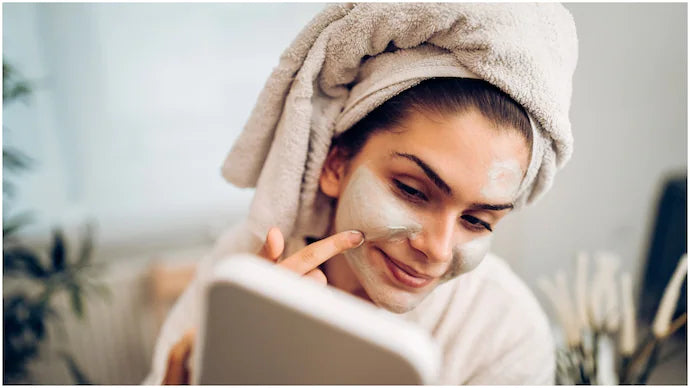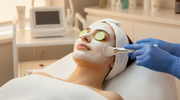Should you include Retinol in your skincare routine? Expert answers

To answer the queries about the pros and cons of Retinol, IndiaToday.in spoke to dermatologist Dr Jushya Bhatia Sarin, who debunked myths regarding this particular subject.
In Short
- Several people have a plethora of doubts about the usage and benefits of Retinol.
- Retinol is a form of vitamin A.
- IndiaToday.in spoke with dermatologist Dr Jushya Bhatia Sarin to answer queries regarding Retinol.
By Shubhi Mishra: If you love all things beauty, we are sure you must have considered including Retinol in your skincare regimen. But should you? Well, several people are using it in the form of serums and creams and some have got great results as well. Most others, however, are pretty confused because topical application of Retinol can have certain side-effects as well.
So, to answer these queries about the pros and cons of Retinol, IndiaToday.in spoke to dermatologist Dr Jushya Bhatia Sarin, who debunked myths regarding this particular subject.
BENEFITS OF RETINOL
Upon being asked about the benefits of Retinol, Dr Jushya said that there are fewer things in the skin that don’t benefit from a retinol. “It is particularly useful in reducing fine lines and wrinkles, treating acne, even out the skin tone and texture, lessen the appearance of open pores, treat the signs of sun damage and reduce oiliness on the skin.”
SIDE EFFECTS OF RETINOL
Now, let’s come to the side-effects of using Retinol as well. It is important to emphasise that the side-effects are temporary and last for six to eight weeks. According to Dr Jushya, the most common side-effects are redness, dry and flaky skin, itching and/or burning sensation. The less common but relevant side-effects are purging (temporary increase in the number of pimples and severity of acne) or retinoid dermatitis (a more severe form of skin reaction to Retinols).
MYTHS SURROUNDING RETINOL
1. Retinols and retinoids are the same thing - Retinols are the weakest form of retinoids. They are all different derivatives of vitamin A. There are many potent ones that need to be used only after consultation with a dermatologist. Retinols, however, are safer and available over the counter.
2. Retinols make your skin sensitive to sun - Retinols, in fact, are useful in treating sun-damaged skin, be it in the form of fine lines or sunspots. But, because some retinol forms can be degraded by the sun, its best to use them at night. Also, since the skin becomes a little sensitive per se in the initial phases of retinol application, it is best to wear sunscreen if you are on retinol or otherwise.
3. Retinols are not for teenagers - Retinols are great agents to control oiliness and treat blackheads and whiteheads. They are not just for anti-ageing. If used judiciously, it makes the skin more adaptable to changes in the skin in your teenage years.
4. Retinols alter skin texture - This is not true. The increased turnover of the skin cells by Retinol might make you believe that they thin it out, but in reality, they only normalise the skin cell turnover that had slowed down with age.
6. You can use Retinol as a spot treatment - There is no role of Retinol as a spot treatment. Retinol needs to be used as a thin layer on the face and neck for both anti-acne and anti-ageing benefits. Application of Retinol at one point can burn the skin.
7. Retinol causes skin peeling - Overuse of Retinol can cause the skin to peel. It might also increase skin sensitivity. If you are peeling with Retinol, you need to reduce the amount that you apply and use a moisturiser later.
8. You need to wash off Retinol after sometime - “I have seen some people use Retinol as a 1 hour or 2 hour treatment, which is not the correct way. The ideal way to use retinol is - sparingly with overnight application,” Dr Jushya quoted.
9. You can’t apply Retinol around your eyes - If used in the correct percentage, such as 0.1%, retinols are great agents to prevent and treat crows' feet.
CORRECT AGE TO START USING RETINOL
"Honestly, there is no correct age. If Retinol is used for reducing oiliness or pimples on the skin, it can be started by anyone over 12 years of age when these problems commonly occur," Dr Jushya Bhatia Sarin said.
"However, if anti-ageing and preventing fine lines from deepening are your goals, then the mid 20s are an ideal age to start using a retinol," she added.
Read full article: https://www.indiatoday.in/health/story/should-you-include-retinol-in-your-skincare-routine-expert-answers-1991893-2022-08-24


